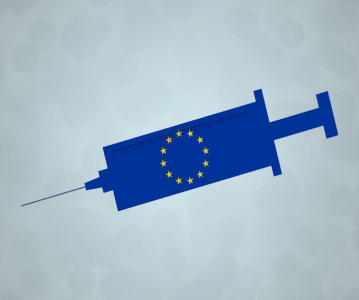Highly Innovative Pipeline Breathing New Life into Non-Small Cell Lung Cancer Treatment

The Non-Small Cell Lung Cancer (NSCLC) treatment pipeline has a diverse selection of 122 first-in-class products and 96 first-in-class targets, giving cause for optimism as the market shifts away from outdated chemotherapies, according to business intelligence provider GBI Research.
The company’s latest report* states that of the 389 drugs in active development across all stages, 38% have a first-in-class mechanism of action. While these products are most commonly found in the earlier development stages, they are still present in the later stages.
Joshua Libberton, Analyst for GBI Research, says that despite a high product attrition rate, a healthy distribution of drugs across the various phases of development will ensure a steady stream of new treatments advancing through each stage and ultimately being granted market approval.
Libberton comments: “The NSCLC therapeutics space is dominated by ‘old’ chemotherapies and used to be differentiated by histology or cell type to determine the course of treatment, but recent advances have characterised the underlying mutations much more accurately.
“The most promising first-in-class therapeutics tend to target components of vital cancer signaling pathways, offering innovative mechanisms to counteract the negative effects of increasing numbers of mutated, amplified or overexpressed proteins in NSCLC tumours.”
The analyst notes that there is robust scientific rationale supporting the development of the most promising targets.
Libberton continues: “Analysis shows that many first-in-class pipeline products align to molecular aberrations or the dysfunctional signaling pathways of which they are components.
“Preclinical data frequently supports combination treatment use to yield the best results. First-in-class therapies that target survival signaling or cell cycle regulation exhibit the greatest decreases in tumour growth or volume, when used with a currently marketed therapeutic.”
The analyst adds that among the most promising first-in-class targets are several components of highly researched pathways, such as Phosphatidylinositol-4, 5-bisphosphate 3-Kinase (PI3K) signaling, highlighting the successful application of cancer research into promising drug development.
“Despite being commercially risky, targeted therapies have proven to be some of the most successful products across the industry over the last decade, so there is a strong case for innovation in NSCLC treatment,” Libberton concludes.
Related News
-
News Patients vs Pharma – who will the Inflation Reduction Act affect the most?
The Inflation Reduction Act brought in by the Biden administration in 2022 aims to give better and more equitable access to healthcare in the USA. However, pharma companies are now concerned about the other potential costs of such legislation. -
News CPHI Podcast Series: What does the changing US Pharma market mean for industry and patients alike?
In this week's episode of the CPHI Podcast Series Lucy Chard, Digital Editor for CPHI Online is joined by James Manser to discuss the political and market changes in the US pharma field. -
News CPHI Barcelona Annual Report illuminates industry trends for 2024
The CPHI Annual Survey comes into it’s 7th year to report on the predicted trends for 2024. Over 250 pharma executives were asked 35 questions, with their answers informing the industry landscape for the next year, spanning all major pharma marke... -
News Which 10 drugs are open to price negotiation with Medicare in the USA?
The Centres for Medicare & Medicaid Services, under the Biden administration in the USA, has released a list of the 10 drugs that will be open to price negotiations as part of the new legislation under the Inflation Reduction Act (IRA). -
News EU Medical Devices Regulation causes unintended disappearances of medical devices for children, doctors state
Doctor groups and associations have appealed to the EU to correct the EU Medical Devices Regulation law that may cause unintended shortages of essential drug and medical devices for children and rare disease patients. -
News 10 Major Drug Approvals So Far in 2023
Last year, 37 novel drugs were approved by the FDA, this was a high number for such a category, and covered many fields including oncology, demonstrating how promising further research is, and how it is only continuing to build. To date, there are alre... -
News Detecting Alzheimer's disease with a simple lateral flow test
A novel rapid diagnostic test for early-stage Alzheimer's disease has been developed using a biomarker binder from Aptamer Group along with technology from Neuro-Bio, the neurodegenerative disease experts. -
News CPHI Podcast Series: outsourcing and manufacturing trends
Listen to the CPHI Podcast Series this June to hear Gil Roth of the PBOA speak with Digital Editor Lucy Chard about the biggest trends and topics to watch in pharma outsourcing and manufacturing at the minute.
Position your company at the heart of the global Pharma industry with a CPHI Online membership
-
Your products and solutions visible to thousands of visitors within the largest Pharma marketplace
-
Generate high-quality, engaged leads for your business, all year round
-
Promote your business as the industry’s thought-leader by hosting your reports, brochures and videos within your profile
-
Your company’s profile boosted at all participating CPHI events
-
An easy-to-use platform with a detailed dashboard showing your leads and performance







